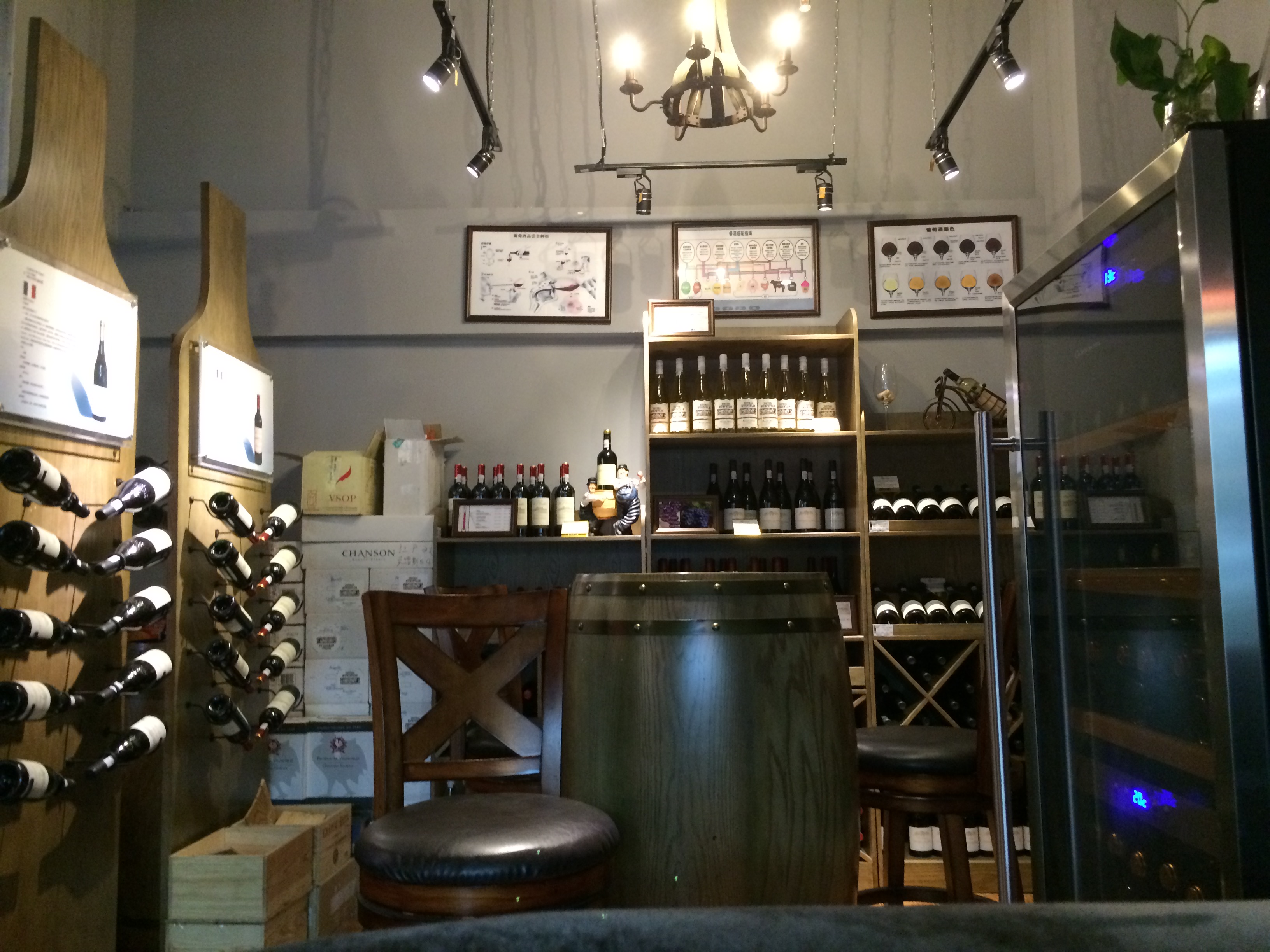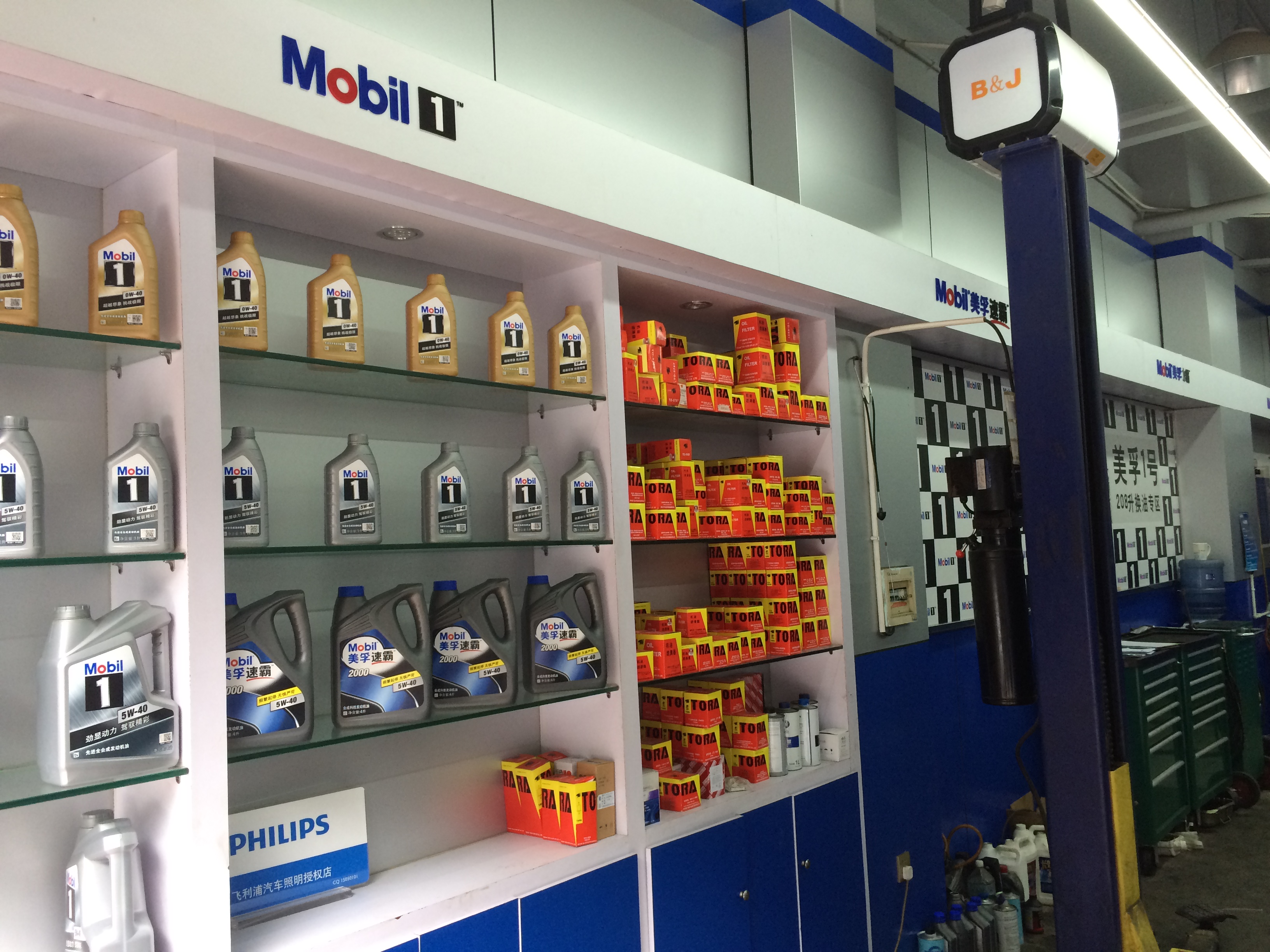CHENGDU, China– Off a bustling street in the heart of this western megacity, car maintenance customers lounge on leather sofas, sipping freshly brewed Jasmine tea or full-bodied Merlot. At this V-Kool quick lube, your oil change is your ticket to relax.
Drivers here have choices to make when servicing their cars: ExxonMobils Mobil 1 or Felida, a local brand; Chardonnay or cappuccino. The latter set of options may not exist if car owners hadnt starting caring more about the first, shop manager Zhong Zuneng told Lube Report Asia.
In his workshop – and many others in China, he said – drivers are offered a welcoming environment while their car is serviced. In the service bay, hydraulic lifts whirr and tools clank on the ground; the typical sour smell of used oil fills the garage. But on the other side of the large window, servers bring customers cookies and coffee in a warmly lit lounge adorned with wine barrels and graced with the sounds of jazz.

Joe Beeton
Zhong said Chinese drivers have come to expect this type of five-sense amenity as part of the experience of owning and caring for a nice car.
Theres a trend toward higher-end and luxury cars not just in Sichuan Province, but throughout the country, Zhong said on a tour of the franchised facility. There is an overwhelming sense that Chinese car owners take more pride in their cars in recent years. This has meant [that they demand] better motor oils.
While the size of Chinas car fleet had been rapidly expanding in the past decade, experts now unanimously recognize that the growth has slowed – possibly permanently.
According to the China Association of Automobile Manufacturers, 11.4 million new cars were sold in the first seven months of 2015. That represents a 3.4 percent increase over the same period of 2014 but also a significant decrease in sales growth. In the first seven months of 2014, passenger car sales were 12 percent higher than the same period of 2013.
While the rate of increase in car ownership slows, the quality of cars being purchased is rising. Many international makes such as Volkswagen, Audi and Mercedes Benz are seeing their market shares expand. Types of vehicles are trending toward larger and more lavish as well. According to CAAM, annual SUV sales were up 46 percent this July.
Drivers relatively newfound sense of pride in ownership is reflected in their knowledge and choices of the lubricants they use and the places where they get their oil changed, Zhong said.
Drivers have options in do-it-for-me service. The two main choices in urban areas are 4S (Sale, Spare part, Service and Survey) stores primarily operated by auto dealerships, and beautification quick-lube chain stores. There are also no-frills garages in the outskirts of urban areas and in the countryside. Chinas Ministry of Transport categorizes these garages into three levels delineated by scale and requires certification for all.
Drivers are opting less to go to 4S stores, which they consider generally more expensive and less flexible on options. Instead, Zhong said, more car owners are opting for beautification workshops.
V-Kool, for example, offers car washes and waxes along with detailing and cosmetic and performance upgrades. He noted that drivers seem to value regular oil changes as much as they do keeping their cars clean and looking good, and that his shop does about 200 oil changes per month.
More and more, drivers recognize and value foreign brands of motor oils, he continued. Zhongs V-Kool location sells Mobil products, which he said is requested most frequently and growing in popularity.

Joe Beeton
His shop also offers Chinese brands Justar and Felida – the latter of which is supplied by Sichuan Xuanming Ltd., a manufacturer based in an industrial district of Chengdu.
Xuanming director He Shaodong told Lube Report Asia that maintenance shops like V-Kool offer a valuable platform for reaching customers.
Theres a small but growing pool of Chinese drivers that are educated and informed about motor oil quality and international brands, He said. Those motorists tend to choose widely recognized international brands.
But the majority of drivers still let maintenance shops choose oil for them. Unless they ask for a specific band, car owners are usually matched with his companys line of products at V-Kool; the Felida line meets the current standards and original equipment manufacturer requirements necessary for most high-end car makes on the Chinese market, He claimed, yet arent priced at the same premium as major international brands.
Average drain intervals are between 5,000 kilometers and 7,000 kilometers, He noted, which he said is more frequent than a lot of Western or developed countries due to Chinas relatively lower-quality fuel standards. Synthetics are increasing in popularity, he continued, because they represent a higher standard of value to consumers.